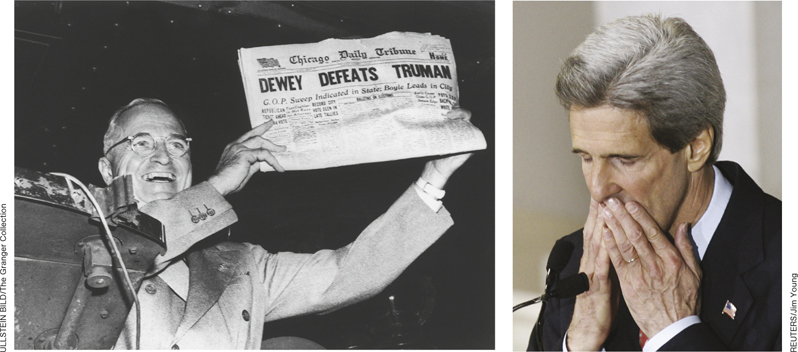
Generalizing from nonrandom samples can lead to mistaken conclusions. In the presidential election of 1948, the Chicago Tribune mistakenly predicted that Thomas Dewey would beat Harry Truman. Why? Because polling was done by telephone, and Dewey Republicans were more likely to have telephones than were Truman Democrats. In the presidential election of 2004, exit polls mistakenly predicted that John Kerry would beat George Bush. Why? Because polling was done by soliciting voters as they left the polls, and Kerry supporters were more willing to stop and talk.
ULLSTEIN BILD/The Granger Collection
REUTERS/Jim Young
REUTERS/Jim Young
[Leave] [Close]